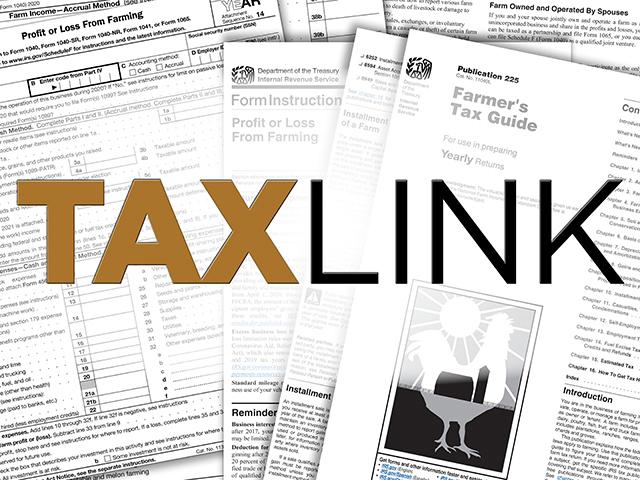Taxlink
All About Land Transactions
I've been getting a lot of questions regarding land transactions. With high commodity prices, farmers are looking to buy/sell land, gift land and enter into 1031 exchanges. However, there could be unexpected tax consequences as a result. I thought it would be a good time to review land transactions from a tax perspective.
Buying and selling land is fairly simple. The seller's taxable gain is the sales price minus basis. When you buy land, the basis is the purchase price. However, there are wrinkles if some of the land is in the Conservation Reserve Program (CRP) or has buildings/tile/irrigation.
When purchased land is in CRP, the buyer may request the land be removed from the program. Some CRP land is eligible to be removed, but typically, the seller must repay all the CRP payments plus interest. The seller would increase the basis in the land sold by the amount of repayment. Sometimes, the buyer will terminate the CRP contract; in that case, the cost would be capitalized. If you sell CRP land without removing it from the program, the buyer purchased the CRP contracts, and the seller would report that portion of the gain as ordinary income in the year of sale.
Another thing to watch out for is the sale of land with Section 1245 property, which will result in what is called recapture. That is, the amounts allocated to Section 1245 property sold would be subject to ordinary income tax rates up to the depreciation taken on those assets.
P[L1] D[0x0] M[300x250] OOP[F] ADUNIT[] T[]
Gifting land is an interesting discussion. When you gift land, the person receiving the land takes your basis. With farmland, usually, the basis is very low. Because of the low basis, it's ideal for the farmer to pass away with land in order to get a stepped-up basis for the next generation. However, land values have skyrocketed, which could result in an estate tax if the land is held until death. One strategy is to gift high-basis land and keep low-basis land to get a partial stepped-up basis.
Another option is to sell the land over a period of years using a self-canceling note. The note is structured so the kids purchase the land at fair market value and pay over a period of years. If the farmer passes away before the kids pay the note, the principal balance runs through the estate and is forgiven. The principal due at death is still part of the estate and is subject to using the estate tax exclusion, but the value of the land was frozen in the year of sale to prevent the appreciation from causing an estate tax issue.
Recently, I've been dealing with several Section 1031 transitions that were structured incorrectly. Section 1031 transactions have a lot of rules and requirements. Keep in mind that 1031 exchanges only are tax-free when dealing with real property. Personal and intangible property are not eligible for 1031 and would result in a taxable gain. Another issue that is too complex to discuss in detail is related to party exchanges. Just a word of caution: If you have a related party associated with a 1031 transaction, talk to a tax professional before assuming it's a tax-free transaction.
As you can see, land is trickier than most people think. With proper planning, you can usually accomplish your goal. However, without proper planning, the tax bill could be more than expected.
**
-- DTN Tax Columnist Rod Mauszycki, J.D., MBT, is a tax principal with CLA (CliftonLarsonAllen) in Minneapolis, Minnesota.
-- Read Rod's "Ask the Taxman" column at https://www.dtnpf.com/…
-- You may email Rod at taxman@dtn.com
[PF_0322]
(c) Copyright 2022 DTN, LLC. All rights reserved.




